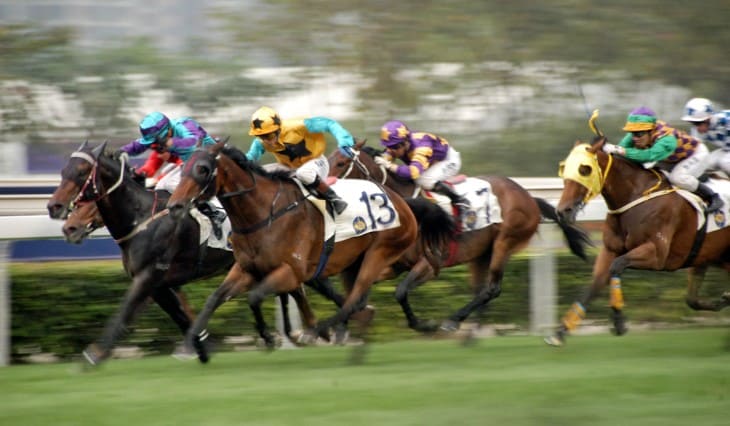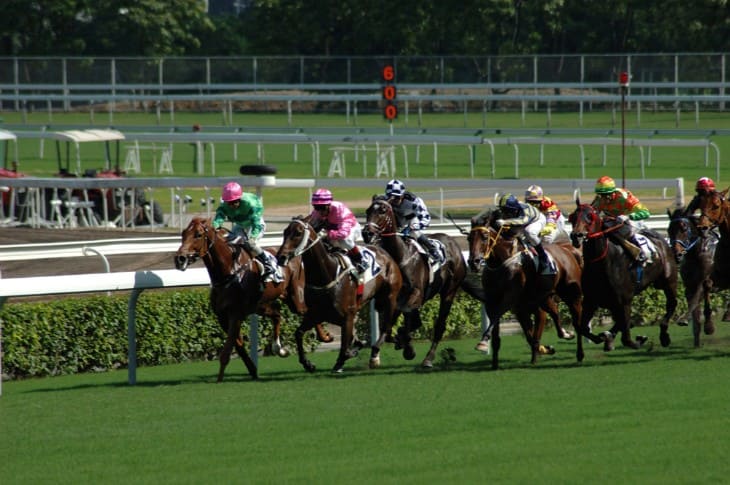If you've ever dreamt of owning a racehorse, the thrill of seeing your colours fly around the track, then understanding the intricacies of purchasing one is vital. Acquiring a racehorse involves careful consideration, a firm grasp of financial aspects, and the guidance of experts in the field. In this article, we will take an in-depth look into what's involved in buying a racehorse, from the initial costs and budgeting to the role of bloodstock agents.
Buying a Racehorse
Owning a racehorse is not just a status symbol; it's an investment in passion and potential. The allure of the racing world, the adrenaline rush of cheering your horse to victory, and the camaraderie among owners are what entice many individuals to embark on this thrilling journey. However, before you jump in, it's essential to understand that owning a racehorse entails significant responsibilities, financial commitments, and a great deal of patience.
The process begins with a clear understanding of your objectives. Are you in it for the excitement and the love of the sport, or do you intend to make a profit through racing successes? Determining your goals will help shape your approach to purchasing a racehorse. From the outset, be prepared for the potential risks and the inevitable highs and lows that come with horse racing.
Understanding the Costs Involved
Buying a racehorse involves various costs, and it's crucial to grasp these expenses to make informed decisions. The primary cost is the purchase price of the horse, which can range from a few thousand to millions of pounds, depending on the horse's pedigree, age, and racing history.
In addition to the initial outlay, there are ongoing expenses to consider. These include training fees, boarding fees, veterinary care, insurance, and entry fees for races. Furthermore, you'll need to budget for ancillary costs like transportation, jockey fees, and administrative fees related to ownership.
One common approach to sharing the financial burden is through syndicate ownership. By joining a syndicate, you pool resources with other individuals, spreading the costs and reducing the financial strain. Syndicate ownership also offers the benefit of shared experiences, knowledge, and support from fellow enthusiasts.
Moreover, it's essential to account for potential setbacks and unforeseen expenses in your budget. Horse racing is a competitive sport, and success is not guaranteed. A horse may face injuries, illnesses, or simply not perform as expected, requiring additional resources to overcome challenges.
To avoid financial strain, always have a clear budget in mind before delving into the purchasing process. Consider consulting with a financial advisor to assess your capacity to afford and sustain racehorse ownership. A well-calculated budget will provide you with the confidence to make informed choices throughout the buying journey.

Evaluating Financial Considerations and Budgeting
As you venture into the world of racehorse ownership, it's essential to assess your financial considerations and budget with utmost care. Purchasing a racehorse is not a decision to be taken lightly, and it requires a clear understanding of your financial capacity and risk tolerance.
Begin by determining how much you are willing to invest in a racehorse without jeopardising your financial stability. Owning a racehorse is an ongoing commitment that may last several years, so be sure to factor in long-term costs. Engage with experts, such as bloodstock agents or experienced owners, to gain insights into potential expenses and hidden costs that may arise during your horse's racing career.
Next, consider the potential returns on your investment. While there are instances of lucrative victories and successful stud careers, racing is inherently unpredictable, and profits are never guaranteed. Be realistic about your financial expectations and be prepared for the possibility of losses.
Once you've assessed your financial situation and established a budget, it's time to explore various buying options. The horse market offers a wide range of choices, from untried yearlings to seasoned racehorses with a proven track record. Each option comes with its own set of risks and rewards, so carefully weigh the pros and cons before making a decision.
Researching and Identifying Suitable Bloodlines
A racehorse's lineage plays a critical role in its potential for success on the track. Studying bloodlines and understanding the importance of pedigree is a fundamental aspect of the buying process. Bloodlines can influence a horse's conformation, temperament, and racing ability, making it essential to assess their pedigree before making a purchase.
When researching bloodlines, focus on successful sires and dams that have produced talented racehorses. Look for horses that have excelled in races similar to the ones you plan to enter your horse into. Additionally, delve into the performance of siblings and close relatives to gain insight into the family's racing history.
Understanding the breeding industry and the significance of stallions and mares in the market is vital. Bloodstock agents can be instrumental in guiding you through this complex world, as they possess valuable knowledge about the intricacies of bloodlines and can help you identify promising prospects.
Remember that a horse's potential extends beyond its pedigree. Factors such as conformation, temperament, and overall health are equally important. Visiting breeders' farms, attending sales and auctions, and interacting with industry experts will provide you with valuable first-hand experiences and improve your ability to evaluate potential racehorses.
The Role of Bloodstock Agents in the Buying Process
Navigating the world of horse racing and understanding the complexities of bloodlines can be a daunting task. This is where the expertise of bloodstock agents comes into play. Bloodstock agents are professionals who specialize in evaluating pedigrees, assessing potential racehorses, and providing invaluable guidance throughout the buying process.
Their extensive knowledge of bloodlines and the racing industry makes them a valuable resource for aspiring racehorse owners. When seeking the services of a bloodstock agent, it's essential to choose one with a proven track record of successful purchases and a reputation for honesty and transparency.
Bloodstock agents work closely with buyers to understand their goals and preferences. They help identify suitable horses based on the buyer's budget, racing aspirations, and risk tolerance. These agents have access to a wide network of breeders, trainers, and industry insiders, giving them insights into potential racehorses that may not be publicly available.
During auctions or sales, bloodstock agents serve as the buyer's representative, bidding on their behalf and utilizing their expertise to secure the best possible deal. They conduct thorough assessments of the horse's conformation, health, and racing potential, providing buyers with detailed reports to aid in decision-making.
While bloodstock agents are instrumental in the buying process, it's essential for buyers to maintain open communication and be actively involved in the decision-making. A successful partnership with a bloodstock agent hinges on trust and collaboration, ensuring that the chosen racehorse aligns with the buyer's vision and objectives.
Visiting Sales and Auctions: Tips and Etiquette
Attending sales and auctions is an exhilarating experience for racehorse buyers, offering a chance to witness some of the finest equine specimens on display. However, it can also be overwhelming, especially for first-time buyers. Having a clear strategy and adhering to proper etiquette can make the process more manageable and fruitful.
Before attending a sale or auction, conduct thorough research on the horses listed for sale. Make a shortlist of potential candidates that align with your budget and pedigree preferences. Engage with your bloodstock agent to gather additional insights and determine a bidding strategy.
Arrive early to allow ample time for pre-sale inspections. Assess the horses up close, paying attention to their physical condition and behavior. Take note of any potential red flags, such as lameness or signs of stress, which could impact a horse's racing career.
During the auction, maintain discipline and stick to your budget. It's easy to get caught up in the excitement of bidding, but overspending can lead to financial strain in the long run. Trust the guidance of your bloodstock agent and avoid making impulsive decisions.
When making a successful bid, it's customary to express gratitude to the auctioneer and maintain a sense of decorum. Remember that auctions are competitive environments, and displaying respect towards fellow buyers and sellers fosters a positive atmosphere within the racing community.
Assessing the Health and Soundness of a Racehorse
A racehorse's health and soundness are paramount considerations when purchasing one. After all, a horse in peak physical condition stands a better chance of success on the track and is likely to have a longer and more fruitful racing career.
Before finalizing a purchase, it's essential to conduct a thorough veterinary examination of the prospective racehorse. Engage a reputable racehorse veterinarian who specializes in sports medicine and has experience evaluating racehorses. The vet will assess the horse's overall health, soundness, and any potential pre-existing injuries or conditions that may impact its performance.
A comprehensive pre-purchase veterinary exam typically includes a thorough physical examination, flexion tests to check for joint and muscle flexibility, and radiographic evaluations to assess bone health. The vet may also conduct additional tests, such as blood work or endoscopy, to gain a more in-depth understanding of the horse's health.
Keep in mind that no horse is entirely free from risk, especially in a high-impact sport like horse racing. The objective of the examination is not to find a perfect horse but to identify any significant health issues that could affect the horse's racing career or require extensive medical care.
Being present during the veterinary exam allows you to ask questions and gain a deeper insight into the horse's health. If the vet identifies any concerns, consult with your bloodstock agent to evaluate the risks and potential implications for your racing objectives.
Contracts, Ownership Syndicates, and Legalities
As you near the final stages of purchasing a racehorse, it's essential to address the legalities and ownership arrangements. These aspects ensure clarity, transparency, and a smooth ownership experience.
Once you've found the racehorse of your dreams and agreed on the purchase terms, a formal contract should be drawn up to outline all the agreed-upon terms and conditions. The contract should encompass details such as the purchase price, payment terms, health guarantees, and any additional agreements between the buyer and seller.
If you're part of a syndicate, a syndicate agreement is crucial to establish the responsibilities and rights of each member. The agreement should define the financial contributions, decision-making processes, and protocols for any potential disputes. Engage legal counsel with expertise in equine law to draft a comprehensive and fair syndicate agreement that protects the interests of all involved parties.
When finalizing the ownership transfer, ensure that all necessary paperwork, including breed registration documents and ownership certificates, is in order. Registering the horse under your name or syndicate's name with the appropriate racing authorities is vital to establish your ownership rights and eligibility to race.
Remember that horse racing regulations vary by jurisdiction, so familiarize yourself with the specific rules and regulations applicable to your country or region. Compliance with these regulations is essential to avoid any potential disqualifications or penalties in future races.
Training and Preparing a Racehorse for the Track
Once you've completed the purchasing process and officially become a racehorse owner, the next crucial step is to prepare your horse for its racing career. This phase involves training, conditioning, and nurturing the horse's potential to bring out its best on the track.
Enlist the services of a professional and experienced horse trainer to guide your racehorse through its training journey. A good trainer understands the nuances of horse racing and tailors training programs to suit each horse's individual needs. Training regimes typically include exercises to build stamina, improve speed, and enhance agility, ensuring that the horse is in optimal physical shape.
Racing preparation also involves exposing the horse to various racecourse environments to familiarize it with the track, starting gates, and race-day atmospheres. Additionally, horses are often subjected to barrier trials, where they run short races without the pressure of competition, allowing trainers to assess their readiness for official races.
Throughout the training process, communication with your trainer is essential. Regular updates on your horse's progress and performance will enable you to stay informed and involved in its development. Collaborating with the trainer and providing feedback on your horse's temperament and preferences can contribute significantly to its overall success.
Beyond the Purchase: Ongoing Care and Ownership Responsibilities
Becoming a racehorse owner comes with enduring responsibilities beyond the initial purchase and training stages. The well-being of your racehorse is a priority, and providing appropriate care is vital to maintain its health, happiness, and racing potential.
Ensure that your horse receives regular veterinary check-ups and vaccinations to safeguard against illnesses and injuries. Address any health issues promptly to prevent them from escalating and hindering your horse's racing career.
Maintaining a balanced diet is fundamental to a racehorse's performance. Collaborate with your trainer and equine nutritionists to develop a diet plan that caters to your horse's nutritional requirements based on its training intensity and racing schedule.
Exercise and turnout are crucial for a racehorse's mental and physical well-being. Allow your horse ample time to relax and enjoy some leisure time in the paddock to alleviate stress and promote a positive racing attitude.
Engage with other racehorse owners and members of the racing community to build a support network. Sharing experiences, insights, and advice can be invaluable in navigating the ups and downs of racehorse ownership.
Above all, cherish the journey and celebrate the triumphs, regardless of the outcome on the racetrack. Horse racing is a sport of passion and perseverance, and being part of this thrilling world is an experience like no other.

Congratulations!
You are now equipped with valuable knowledge about the process of buying a racehorse, from the initial costs and budgeting to the ongoing responsibilities as a racehorse owner.








